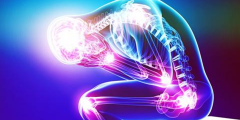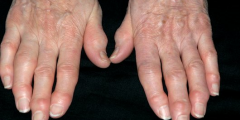Foot and ankle Osteoarthritis and Cognitive impairment in retired UK Soccer players
March 31, 2023
Osteoarthritis and knee pain can force anyone to slow down; but FOCUS, the School of Academic Rheumatology’s latest study in the field, has been gaining considerable momentum. The FOCUS study (Foot and ankle Osteoarthritis and Cognitive impairment in retired UK Soccer players) aims to shed light on the effects of playing professional football on knee …
The East Midlands Knee Pain Multiple Randomised Controlled Trial Cohort Study
May 20, 2021
Acceptability of a nurse-led non-pharmacological complex intervention for knee pain: Nurse and patient views and experiences The research team led by Professor Abhishek developed and tested the feasibility of a complex intervention for knee pain delivered by a nurse, and comprising both non-pharmacological and pharmacological interventions. In the first phase, the acceptability of the non-pharmacological …
Persistent knee pain following total knee replacement
The problem of knee Osteoarthritis (OA), and therefore chronic pain and disability, is on the rise. Although total knee replacement (TKR) has significantly improved pain and functioning for most end-stage knee OA patients, unfortunately 20% of patients still report persistent knee pain following TKR. Third year medical student, Lauren Quinn, undertook a project which aimed …
Identifying key elements of non-pharmacological treatment package for fibromyalgia: Evidence synthesis and Delphi exercise
April 14, 2020
Fibromyalgia (FM) is a long-term condition that causes pain all over the body and currently has no cure. However, there are treatments which can help relieve some of the symptoms and make the condition easier to live with. Burak Kundakci, a PhD student at the University of Nottingham, conducted research into a package of care …
Investigating the adverse effects related with long term use of paracetamol
April 3, 2020
Guidelines often recommend paracetamol as a first-line analgesic, particularly for osteoarthritis (OA), based on its perceived safety. However, there is growing discussion, highlighted in the National Institute for Health and Care Excellence OA (NICE) 2014 guidance on OA, that paracetamol is not as safe as originally thought, especially at the highest therapeutic dose of 4gm/day. …
Neural adaptations to acute muscle damage in younger and older adults (AMD)
March 10, 2020
Muscle force relies on a combination of altered motor unit (MU) firing rates and recruitment through an increasing range of sizes. However, alterations in these mechanisms may influence muscle functional decline when in a fatigued and damaged state. Although eccentric exercise provokes more significant loss of function, muscle damage and soreness than concentric exercise, it …
Chronic Pain and Work
March 4, 2020
The aim of this study is to develop a toolkit for employees with chronic pain. This toolkit will address the barriers to working for people who experience pain, encouraging self-management through promoting physical and mental wellbeing. It will provide advice on adjustments to work environments in order to create a more inclusive and accessible environment. …
How hand osteoarthritis is associated with hand pain and function
March 2, 2020
Dr Abhishek is currently leading a study that investigates ultrasound markers of symptoms of hand osteoarthritis (OA). OA is the most prevalent form of arthritis, particularly concerning hand joints. The symptoms of OA include; joint swelling, functional impairment, participation restriction and overall reduced quality of life. Despite this, there are no disease-modifying drugs for OA …









